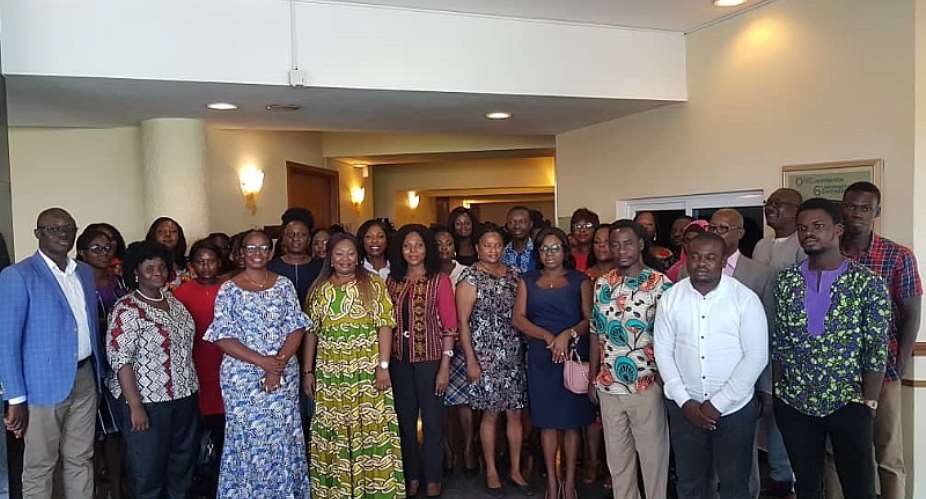The Ghana Anti-Corruption Coalition (GACC) with support from the United Nations Development Programm (UNDP), has indicated that women constitute half of the world’s population, yet they are mostly not engaged in discussions on developmental matters.
According to Transparency International report, empowering women and promoting their participation in political life is essential to fighting corruption, leveling the playing field and the gender power imbalances as well as inequalities between women and men.
It is said that women are the custodians of building the value systems of the next generation, as they mostly take care of children with the needed capacity and information, women can contribute to advocacy against corruption in their local communities and demand accountability from public officials as well.
Speaking at the forum held recently in Accra, Mrs. Clara Beeri Kasser-Tee, a legal practitioner and a lecturer at GIMPA said, "there is the need to put value systems in place to enable women partake in the national conversation on the fight against corruption."
This she maintained, would enable women to contribute effectively towards the fight against corruption; "it is necessary to establish a dialogue between the actors dedicated to fighting against corruption and for gender equality and equity, to allow for a greater understanding of the links between gender dimensions and corruption".
Nana Teiba Chinebuah, Lead Democratic Governmance Cluster- Programme Specialist at UNDP noted that women constitute the vast majority of people living in poverty, thus they are more affected by the vicious cycle that corruption creates for disadvantaged people.
"Anti-Corruption has been a priority on the good governance agenda for decades: this is because corruption impacts negatively on the development of a country; and undermines good governance and the rule of law, erodes confidence and trust in the public sector".
Nana Chinebuah lamented that "It threatens economies by undermining fair competition and discouraging investment and trade. It disproportionately affects disadvantaged groups by preventing social inclusion, promoting inequality and inhibiting prosperity."
Source: The Punch Newspaper
Email: [email protected]





 We’ll no longer tolerate your empty, unwarranted attacks – TUC blasts Prof Adei
We’ll no longer tolerate your empty, unwarranted attacks – TUC blasts Prof Adei
 Bawumia donates GHc200,000 to support Madina fire victims
Bawumia donates GHc200,000 to support Madina fire victims
 IMF to disburse US$360million third tranche to Ghana without creditors MoU
IMF to disburse US$360million third tranche to Ghana without creditors MoU
 Truck owner share insights into train collision incident
Truck owner share insights into train collision incident
 Paramount chief of Bassare Traditional Area passes on
Paramount chief of Bassare Traditional Area passes on
 Two teachers in court over alleged illegal possession of BECE papers
Two teachers in court over alleged illegal possession of BECE papers
 Sunyani: Victim allegedly shot by traditional warriors appeals for justice
Sunyani: Victim allegedly shot by traditional warriors appeals for justice
 Mahama vows to scrap teacher licensure exams, review Free SHS policy
Mahama vows to scrap teacher licensure exams, review Free SHS policy
 Government will replace burnt Madina shops with a new three-story, 120-store fac...
Government will replace burnt Madina shops with a new three-story, 120-store fac...
